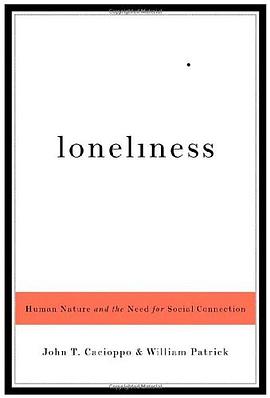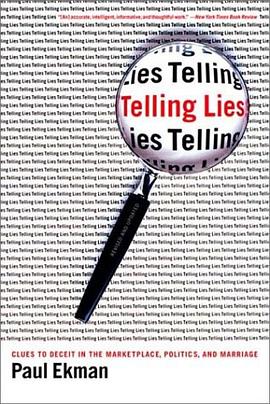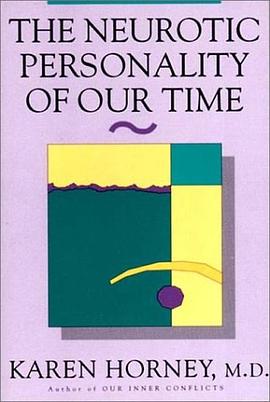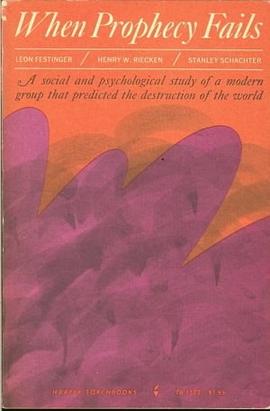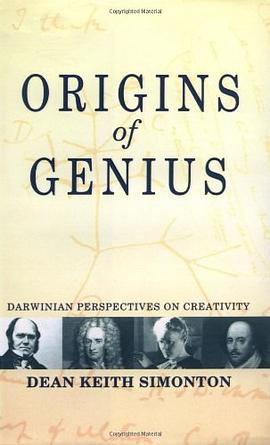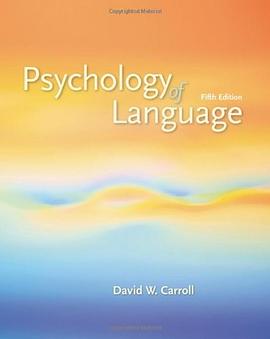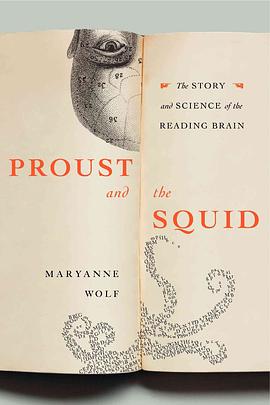

具体描述
Anyone who reads is bound to wonder, at least occasionally, about how those funny squiggles on a page magically turn into "Bare ruined choirs, where late the sweet birds sang" or "After a while I went out and left the hospital and walked back to the hotel in the rain." Where did this unlikely skill called reading come from? What happens in our brain when our eyes scan a line of type? Why do some of us, or some of our children, find it difficult to process the visual information held in words?
In Proust and the Squid, Maryanne Wolf, a professor at Tufts University and director of its Center for Reading and Language Research, offers explanations for all these questions, but with an emphasis that is "more biological and cognitive than cultural-historical." This means that Wolf focuses on the physiological character of the human brain, which holds at its disposal "three ingenious design principles: the capacity to make new connections among older structures; the capacity to form areas of exquisitely precise specialization for recognizing patterns in information, and the ability to learn to recruit and connect information from these areas automatically." These "design principles" provide the neuronal foundation of reading, and Wolf spends half her book explaining the evolution and minutiae of this "reading brain."
Nearly all this material makes for very hard slogging, even though Proust and the Squid is confidently described as the author's "first book for the general public." (The catchy but utterly uninformative title, by the way, refers to the novelist's impressionistic thoughts about childhood reading and a scientist's use of the squid brain for neurological research.) A work of popularization needs a light clear style, lots of anecdotes and some plot or story line that moves along at a good clip. At times, Wolf makes a stab at including some human-interest element or personal example, but all too soon she reverts to her normal prose, which is austere, technical and, finally, wearisome:
"In a pathbreaking meta-analysis of twenty-five imaging studies of different languages, cognitive scientists from the University of Pittsburgh found three great common regions used differentially across writing systems. In the first, the occipital-temporal area (which includes the hypothesized locus of 'neuronal recycling' for literacy), we become proficient visual specialists in whatever script we read. In the second, the frontal region around Broca's area, we become specialists in two different ways -- for phonemes in words and for their meanings. In the third, the multifunction region spanning the upper temporal lobes and the lower, adjacent parietal lobes, we recruit additional areas that help to process multiple elements of sounds and meanings, which are particularly important for alphabetic and syllabary systems."
Out of context such prose sounds perfectly dreadful -- and in context sadly characteristic of the writing in professional journals, no matter what the field. In fact, everything Wolf says makes sense, the specialized terms she uses have been previously defined, and there are line illustrations on a facing page. Nonetheless, such technical onslaughts are extremely tiring to read, and Wolf seldom lets up on the information-rich barrage for very long. At different points she does quote passages from Proust and George Eliot, but even these two great novelists are hardly what you'd call sprightly, and they merely add their own specific gravity to already forbidding pages.
In the second half of the book, Wolf examines the reading difficulties generally subsumed under the term dyslexia. We learn that one of her sons suffers from this disability, that there are various forms and theories about its origin and character, that it can sometimes result in a special talent for fields that emphasize pattern and spatial creativity (such as art, design and engineering) and that "programs which systematically and explicitly teach young readers phoneme awareness and grapheme-phoneme correspondence are far more successful in dealing with reading disabilities than other programs." As this last sentence makes evident, no relief awaits the once-eager reader who by this point has begun to wonder if he could be suffering from a sudden case of adult-onset dyslexia.
Despite Wolf's failure to write a truly popular book, she clearly does know her stuff, and those professionally involved with the teaching of reading might be more patient than I. In particular, she addresses the special needs of children raised in cultures where standard English isn't the dominant language, and she speculates, with real concern, about the impact of computer culture on the "reading brain." Dyslexia has taught her that humans were never genetically designed to read, and this peculiar technique of sustained mental attention could be reduced, reconfigured or even lost in the rising digital age:
"Will unguided information lead to an illusion of knowledge, and thus curtail the more difficult, time-consuming, critical thought processes that lead to knowledge itself? Will the split-second immediacy of information gained from a search engine and the sheer volume of what is available derail the slower, more deliberative processes that deepen our understanding of complex concepts, of another's inner thought processes, and of our own consciousness?"
Wolf never fully answers these questions, though they strike me as the basis for a much needed book. Still, like any parent with a child transfixed by flashing screens, she is troubled by what she observes. She urges that we "teach our children to be 'bitextual' " or 'multitextual,' able to read and analyze texts flexibly in different ways" so that our sons and daughters don't end up as mere "decoders of information," distracted from the "deeper development of their intellectual potential." Early on in Proust and the Squid, she had noted that infants and toddlers who aren't told stories by their caregivers, who aren't read to from a very early age, nearly always fail to learn to read well themselves. By implication, it may already be too late for many young people: They will never be able to read with the same thoughtfulness and comprehension as their parents. Think about that.
作者简介
玛丽安娜•沃尔夫(Maryanne Wolf)
★美国塔夫茨大学儿童发展心理学教授,阅读与语言研究中心主任。
★曾获富布莱特奖,并因出色的教学和科研工作,获得美国心理学会、美国国家儿童健康与人类发展研究所以及国际阅读障碍者协会颁发的奖项。
★《普鲁斯特与乌贼》获得玛格•梅尔克年度最佳阅读图书奖。
★《华盛顿邮报》称赞她“说的任何事都具有一定的意义,她还真正预言了计算机文化对‘阅读思维’的影响”。
目录信息
读后感
这是一个非常前沿的领域。现在回头看,80,90年代的大陆的很多书都是过时和幼稚的。 感谢沃尔夫女士。即便是现在,脑神经系统的最大发现仍然没有到来。我们也许正处在一个像地理大发现一样的前夜。但显然,很多人已经相信从欧洲往西可以到达印度了。 这本书的贡献还在于对阅读...
评分声称要对阅读进行科学研究,就像声称对爱情进行科学研究一样,会被绝大多数人看成是对人性的贬低,是对人世间的“魔法”冥顽不灵的否认。好在我们这个时代的科技工作者尚缺乏探索人类复杂感受与认知活动的能力。目前,这些顽固的实证主义者还只能借助脑成像对我们的阅读体验探...
评分1、推荐所有关心儿童、儿童阅读、儿童学习的人阅读本书,因为这本书除了可以让我们尊重阅读这件事之外,还可以让我们尊重儿童。对于各方面趋于固化的成人来说,如果不了解阅读,不了解儿童,那么很有可能会妨碍到儿童的良性发展。 2、这本书的可读性其实很强,作者是基于科研成...
评分这是一个非常前沿的领域。现在回头看,80,90年代的大陆的很多书都是过时和幼稚的。 感谢沃尔夫女士。即便是现在,脑神经系统的最大发现仍然没有到来。我们也许正处在一个像地理大发现一样的前夜。但显然,很多人已经相信从欧洲往西可以到达印度了。 这本书的贡献还在于对阅读...
评分用户评价
这本书给我带来的,不仅仅是知识上的满足,更是一种精神上的升华。作者的文字具有一种独特的魅力,它能够将那些看似枯燥的理论,变得生动而又充满吸引力。我尤其欣赏他那种对细节的执着,他能够从一个微小的切入点,延伸出对人类整体命运的思考,并且能够将不同领域的知识融会贯通,形成一种独特的见解。我感觉自己就像一个在寻宝的探险家,每一次翻页,都可能发现新的惊喜,每一次阅读,都可能获得新的启示。作者的叙述方式非常灵活,他并非拘泥于一种固定的模式,而是根据所探讨的主题,自由地切换视角和语言风格。有时候,他会变得非常冷静和客观,如同一个科学家在解剖事实;而在另一些时候,他又会展现出一种深情和内省,仿佛在与读者分享他内心最真实的感受。这种多层次的表达方式,让这本书充满了生命力,也让我感受到了作者作为一个人,其思想和情感的丰富性。我发现,我在阅读的过程中,不仅仅是在获取信息,更重要的是,我在学习如何去观察,如何去感受,如何去理解这个世界。他的文字具有一种治愈的力量,它能够抚平我内心的焦虑,让我重新找回对生活的热情和希望。
评分我必须承认,一开始我并没有完全理解这本书的全部含义。它的深度和广度,以及作者在论述中所展现出的那种跨学科的视野,确实是相当震撼的。读这本书的过程,更像是在进行一场智力上的探险,我需要不断地去理解那些复杂而精妙的论证,去捕捉那些隐藏在字里行间的细微之处。有时候,我会遇到一些我不太熟悉的领域,但作者总能用一种非常清晰且富有逻辑性的方式将它们阐释清楚,让我能够跟得上他的思路。这种感觉就像是在攀登一座巍峨的山峰,虽然过程充满挑战,但每一次克服困难,都能让我看到更广阔的风景。我特别欣赏作者那种不畏艰难,敢于触及深层问题的勇气。他并没有回避那些具有争议性或难以解释的议题,而是迎难而上,用严谨的逻辑和丰富的证据来支撑自己的观点。在阅读过程中,我发现自己常常会停下来,思考作者所提出的问题,并试图将其与我自己的生活经历和所学知识联系起来。这种主动的思考和反馈,让阅读变得更加生动和有意义。有时候,我会感觉到作者的语言充满了诗意,即使是在论述一些非常学术性的内容时,他也能保持一种优雅的节奏和流畅的表达。这使得这本书不仅具有思想的价值,也具有艺术的美感。我感觉自己在这场阅读之旅中,不仅仅是在获取信息,更是在进行一次深刻的自我对话,一次对生命意义的追寻。
评分读完这本书,我感到自己仿佛经历了一场精神上的洗礼。作者的文字具有一种独特的穿透力,它能够直抵人心的最深处,触及那些被我们常常忽略的情感和思想。我特别欣赏他那种勇于探索未知的精神,他敢于挑战传统的观念,敢于质疑那些看似理所当然的“事实”。这种批判性的思维,让我对很多事情都有了新的认识。作者的论述并非空泛的理论,而是建立在扎实的证据和深刻的洞察之上。他能够将那些复杂的科学原理、历史事件、哲学思想,用一种清晰且富有逻辑性的方式串联起来,形成一种独特的视角。我感觉自己就像一个在星空下仰望的观星者,被那些遥远而又神秘的星辰所吸引,渴望去理解它们背后的故事。在阅读过程中,我常常会停下来,思考作者所提出的问题,并试图将其与我自己的生活经历相结合。这种主动的思考,让阅读不再是被动的接受,而是成为一种积极的互动。作者的文字具有一种温柔的力量,它不会强迫你接受任何观点,而是通过一种潜移默化的方式,引导你去思考,去感悟。
评分当我拿到这本书的时候,我并没有抱有太高的期望,因为我之前对这个主题了解不多。然而,这本书完全颠覆了我的认知。作者的文字具有一种独特的穿透力,它能够将那些晦涩的概念,用一种生动有趣的方式解释清楚,让我仿佛置身于一个生动的课堂。我尤其欣赏他那种对细节的执着,他能够从一个微小的切入点,延伸出对人类整体命运的思考,并且能够将不同领域的知识融会贯通,形成一种独特的见解。我感觉自己就像一个在黑暗中摸索的孩子,突然间,一道光芒照亮了我前行的道路。作者的叙述风格非常灵活,他并非拘泥于一种固定的模式,而是根据所探讨的主题,自由地切换视角和语言风格。有时候,他会变得非常冷静和客观,如同一个科学家在解剖事实;而在另一些时候,他又会展现出一种深情和内省,仿佛在与读者分享他内心最真实的感受。这种多层次的表达方式,让这本书充满了生命力,也让我感受到了作者作为一个人,其思想和情感的丰富性。我发现,我在阅读的过程中,不仅仅是在获取信息,更重要的是,我在学习如何去观察,如何去感受,如何去理解这个世界。他的文字具有一种治愈的力量,它能够抚平我内心的焦虑,让我重新找回对生活的热情和希望。
评分第一次翻开这本书,我便被它所营造出的独特氛围所吸引。作者的文字并非直白地告诉读者“是什么”,而是通过一种引导,一种暗示,让我自己去发现,去感知。他擅长使用那些充满画面感的词语,将抽象的概念具象化,让我在阅读的同时,仿佛身临其境。我感觉自己就像一个在静谧的森林中漫步的旅人,每一步都可能遇见新的风景,每一个转角都可能带来新的惊喜。作者的思考极其细腻,他能够捕捉到那些常人容易忽略的情感细微之处,并将其放大,呈现出一种令人动容的力量。我尤其欣赏他在论述过程中所展现出的那种耐心和深度,他愿意花时间和精力去探索每一个可能性,去挖掘每一个细节背后隐藏的意义。这让我感觉到,这本书不仅仅是一次阅读,更像是一次与作者共同进行的深度探索。我发现,我在阅读的过程中,不仅仅是在吸收信息,更重要的是,我在学习如何去思考,如何去感受,如何去理解这个复杂而又充满魅力的世界。他的文字具有一种治愈的力量,它能够抚平我内心的焦虑,让我重新找回对生活的热情和希望。
评分这本书给我带来的,与其说是阅读,不如说是一种沉浸式的体验。作者的文字并非是简单地陈述事实,而是仿佛在构建一个立体而又充满细节的世界,邀请我去探索其中的每一个角落。我尤其欣赏他那种对复杂事物进行深入剖析的能力,他能够将那些看似难以理解的概念,用一种非常清晰且富有逻辑性的方式呈现出来,让我能够轻松地跟随他的思路。我感觉自己就像一个在迷宫中探寻的旅行者,每一步都充满了未知,每一次转折都带来了新的发现。作者的语言风格非常独特,它既有学术的严谨,又不失人性的温暖。他能够用细腻的笔触,描绘出那些人类内心深处的情感,并且能够将这些情感与更宏大的主题联系起来。我发现,我在阅读这本书的过程中,不仅仅是在获取知识,更重要的是,我在学习如何去理解,如何去感受,如何去与这个世界建立更深的连接。他的文字具有一种感染力,它能够激发我内心深处的思考,让我对很多事情都有了新的认识。
评分这本书给我的感觉,就像是一场漫长而又令人着迷的对话。作者以一种非常平等和尊重的姿态,邀请我进入他的思想世界,与他对生命、对感知、对存在进行深入的探讨。他的论述并非单方面的灌输,而是充满了引导和启发,常常会提出一些问题,让我自己去思考,去寻找答案。这种互动式的阅读体验,让我感觉自己不仅仅是一个被动的接受者,更是一个积极的参与者。我常常会在阅读过程中,与作者的观点产生共鸣,也偶尔会有一些不同之处,但正是这种碰撞,激荡出了更多的思考火花。作者的文字功底非常扎实,他能够用精准而富有感染力的语言,将那些抽象的概念描绘得栩栩如生。我尤其欣赏他在处理复杂问题时,那种清晰的逻辑和严谨的态度,让人能够信服并从中受益。我感觉自己不仅仅是在阅读一本书,更像是在与一位睿智的长者进行交流,他不仅传授知识,更重要的是,他教会我如何去观察,如何去感受,如何去理解这个世界。他的思考是如此的细腻,他能够捕捉到那些常人容易忽略的细节,并将其上升到具有普遍意义的层面。这种能力,让我对事物的认知有了更深的层次,也让我对自己的思考方式有了更清晰的认识。
评分这本书,说实话,在书店里初见它的时候,它的封面就吸引了我——那深邃的蓝色背景,以及中间那个若隐若现的、仿佛在低语的文字,就好像一个未解之谜在向我招手。我当时并不知道它具体是讲什么的,只是凭着一种莫名的直觉,觉得它会是一本有深度、有思考的书。拿到手里,沉甸甸的质感,精美的纸张,一切都预示着这次阅读体验不会是浅尝辄止。回到家,放下所有杂事,我迫不及待地翻开了第一页。从一开始,作者的文字就有一种独特的魔力,它不是那种直白的叙述,而是层层递进,仿佛在构建一个宏大的思想迷宫,邀请你去探索其中的奥秘。那种感觉就像置身于一个古老的图书馆,空气中弥漫着纸张和墨水的味道,每一个字都承载着一段历史,一个思想的沉淀。我常常会一边读,一边停下来,反复咀嚼作者的某个观点,思考它在我自身认知体系中的位置。有时候,我会觉得作者的笔触如同画家挥洒的笔墨,将抽象的概念具象化,又或者如同音乐家谱写的乐章,让文字在脑海中奏响旋律。这种沉浸式的阅读体验,让我暂时忘记了外界的喧嚣,完全投入到书中的世界。我开始意识到,这不仅仅是一本书,更像是一个思想的伙伴,一个可以与之对话的灵魂。它带来的启示,不仅仅是知识的增长,更是一种思维方式的拓展,一种看待世界角度的调整。每一章都像是一次心灵的洗礼,让我对某些事物有了全新的认识,也让我对自己有了更深的探索。
评分读这本书,对我来说,是一次极其难得的体验。它的文字并非易于理解的平铺直叙,而是如同精密的仪器,每一个词语、每一个句子都经过了深思熟虑的打磨。我常常会在某个段落停留许久,不是因为我没读懂,而是因为我被其中蕴含的深刻洞察所折服,想要细细品味作者如何将如此复杂的情感和思想,通过文字巧妙地表达出来。他使用的比喻和类比,总是恰到好处,能够瞬间点亮我脑海中的某些模糊概念。我感觉自己就像一个在艺术品展览中欣赏作品的观众,时而驻足沉思,时而赞叹不已。作者的叙述风格非常独特,它不是单一的,而是随着他所探讨的主题而变化。在某些部分,他会变得非常冷静和客观,如同一个科学家在解剖事实;而在另一些部分,他又会展现出一种深情和内省,仿佛在与读者分享他内心最真实的感受。这种多层次的表达方式,让这本书充满了生命力,也让我感受到了作者作为一个人,其思想和情感的丰富性。我发现,这本书不仅仅是关于某个主题的,它更是在探讨一种“如何思考”的方式,一种如何去深入理解世界、理解自己、理解他人。这种能力的提升,对我而言,比任何具体的知识都要宝贵。它让我对很多看似理所当然的事情产生了怀疑,促使我去更深层次地探究。
评分这本书给我的印象,就像是一幅精心绘制的巨幅画卷,每一笔都蕴含着深刻的寓意,每一个色彩都传递着独特的情感。作者的文字并非简单地堆砌,而是如同匠人般,将每一个词语都置于最恰当的位置,形成一种浑然天成的美感。我常常会因为某个句子而停下来,反复咀嚼其含义,然后惊叹于作者表达的精准和巧妙。他能够将那些极其复杂的思想,用一种诗意而又充满洞察力的方式呈现出来,让我在阅读的同时,也感受到一种艺术的享受。我特别欣赏作者那种深邃的思考和广阔的视野,他能够从一个看似微小的切入点,延伸出对人类整体命运的思考,并且能够将不同领域的知识融会贯通,形成一种独特的见解。这种能力,让我对事物的理解不再局限于表面,而是能够看到其背后更深层次的联系和规律。在阅读过程中,我常常会感受到一种强烈的共鸣,仿佛作者在诉说的,正是我想说却又无法言说的。这种默契,让阅读成为一种极其愉悦的体验,我感觉到自己与作者之间建立了一种深厚的联系,一种思想上的交流和碰撞。这本书让我明白,真正的智慧,不仅仅在于知识的积累,更在于如何去观察,如何去感受,如何去思考。
评分前三章有大量关于书总体结构的重复信息,但是没有足够的例子展开说明。关于古代书写系统的发展,书中也有一些小的错误。做为相关研究的从业者,本书的深度令人失望;对没有任何相关背景的读者来说这也恐怕不会是一本非常简明的入门书。
评分前三章有大量关于书总体结构的重复信息,但是没有足够的例子展开说明。关于古代书写系统的发展,书中也有一些小的错误。做为相关研究的从业者,本书的深度令人失望;对没有任何相关背景的读者来说这也恐怕不会是一本非常简明的入门书。
评分:无
评分前三章有大量关于书总体结构的重复信息,但是没有足够的例子展开说明。关于古代书写系统的发展,书中也有一些小的错误。做为相关研究的从业者,本书的深度令人失望;对没有任何相关背景的读者来说这也恐怕不会是一本非常简明的入门书。
评分前三章有大量关于书总体结构的重复信息,但是没有足够的例子展开说明。关于古代书写系统的发展,书中也有一些小的错误。做为相关研究的从业者,本书的深度令人失望;对没有任何相关背景的读者来说这也恐怕不会是一本非常简明的入门书。
相关图书
本站所有内容均为互联网搜索引擎提供的公开搜索信息,本站不存储任何数据与内容,任何内容与数据均与本站无关,如有需要请联系相关搜索引擎包括但不限于百度,google,bing,sogou 等
© 2026 book.quotespace.org All Rights Reserved. 小美书屋 版权所有





